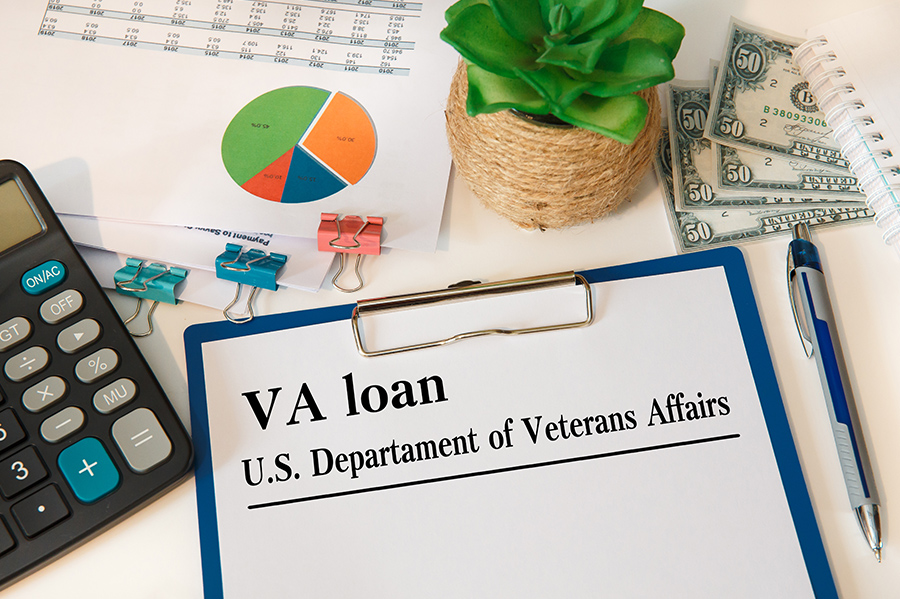Veterans Benefits Attorneys
The U.S. Census Bureau’s 2018 American Community Survey (ACS) states that approximately 18 million veterans live in the United States. The U.S. Department of Veterans Affairs reports that veterans between the ages of 25 and 34 and over the age of 65 are more likely to use VA benefits compared to veterans of other age groups.
Some veterans benefits requests are oftentimes rejected on the first application submission, resulting in the applicant concluding that they are not eligible to receive any VA assistance.

Making Claims Through a Veterans Benefits Attorney
The claims process for veterans was designed by Congress to be specifically friendly to veterans. The main purpose of the Department of Veterans Affairs when President Lincoln enacted it was to, quote, “care for him who shall have borne the battle and for his widow, and his orphan.” There aren’t any time limits on when claims can be filed. Even Congress understands that certain events during a battle may not cause a disability for many years. For this reason, veterans are entitled to file a claim regardless of how long they have been out of the service.
It’s equally important that veterans have the right to reopen claims that the Department of Veterans Affairs may have previously denied. If the veteran can submit new evidence that proves why their claim should be accepted, they’ll have another chance to prove the claim.
Types of Veterans Benefits
The Department of Veterans Affairs provides benefits for veterans who have a service-related disability as well as benefits to family members of those who have died while serving as an active member of the armed forces.
There are numerous programs that the Department of Veterans Affairs provides to veterans, including financial and medical assistance. If a veteran received either a general or an honorable discharge, there are four main benefit programs they could qualify for. Each of these areas has been created to help address the needs of those that have served and are applicable to almost all veterans provided that the criteria for each benefit type are met.
- Disability Compensation
Veterans who have a disability that occurred during service and a satisfactory discharge can receive VA Disability Compensation benefits between $133 and $3,500 a month tax-free.
You could receive additional compensation if your disability has made you unable to work (unemployable), your spouse is seriously disabled, you have dependent parents, a spouse, or children, or you have experienced a loss of limbs or severe disabilities.
- Pension Programs for Veterans
You might qualify for the Veterans Pension or Veterans Disability Pension if you’re a veteran aged 65 and older who served in a war, or you’re unable to work or have a limited income. Other qualifications include:
- Family income that’s below a legal yearly limit
- You’re permanently or entirely disabled, or age 65 and older
- You’ve served at least 90 or more days of active duty with 1 day during war time
- You were discharged under satisfactory conditions that weren’t dishonorable
- Medical Care Through Medical Facilities and VA Hospitals
By law, the VA is legally responsible for providing outpatient care services and hospital care to eligible veterans that are considered to be “needed.” Needed, as defined by the VA, means service or care that will restore, preserve, and promote health, including services, supplies, procedures, and treatment. Need is in accordance with clinical practice standards that are generally accepted, and is based on your healthcare provider’s judgement.
Priority groups are used by the VA to determine the type of care every veteran will receive.
- Education Programs
The GI Bill is an education benefit the Department of Veterans Affairs provides to Active Duty members, National Guard Armed Forces, and Selected Reserve members, along with their families. This benefit helps eligible veterans and service members pay for their training or education. There are several programs the GI Bill offers, depending on a person’s duty status and eligibility.
Other benefit programs include:
- Memorials and burials
- Counseling
- Business loans through the Small Business Administration
- Job training
- Home loans and housing guarantees
VA Benefit Eligibility
There are four basic requirements a veteran must have in order to qualify for benefits.
- All applicants who apply must be veterans
- Applicants must have a medical condition related to their time in the service
- A disease or injury must have been sustained during service
- The veterans disability must be related to something that happened during their tour of duty, including conditions or diseases that may have worsened during service
Individuals must have served as an active member of the United States Air Force, Army, Marines, Navy, Coast Guard, or Merchant Marines (during WWII) and were separated under any condition other than dishonorable. Other groups of servicemembers may also be eligible for VA benefits. The VA has recently expanded access to veterans benefits for other specific demographics, which include:
- Commissioned Officers of the Public Health Service
- The National Oceanic and Atmospheric Administration
- The Environmental Services Administration
- Vietnam veterans exposed to toxic chemicals
- Widows of veterans
- Current and former members of the Select Reserve
Members of the National Guard and Reserves may also be eligible for VA benefits if they were called to active duty on a Federal Executive Order. Reserves and National Guard members with active duty only for training purposes are not eligible, however.
Veterans can only obtain disability benefits if they can prove that their illness or injury was service-related. In order to prove this, their record must contain a current disability that was medically diagnosed, medical proof of the aggravation or development of an injury or disease during service, and medical evidence that the disease or injury and current disability were connected to their time in active duty.

Expanded VA Eligibility Requirements
Due to the changing nature of modern warfare, soldiers are returning from active duty with a more diverse range of injuries and ailments than in years past. These often life-changing injuries are not only devastating for the injured veteran but also for their families and any other dependents that may rely on that veteran for financial and/or emotional support. Some of the injuries veterans may sustain include (but are not limited to):
- Post Traumatic Stress Disorder or PTSD
- Degenerative arthritis of the spine
- Tendon inflammation
- Tinnitus or hearing loss
- Diabetes
The VA has recently been issuing requests that some veterans benefits only be applicable to those who have served during a wartime period. The VA has also started to recognize additional wartime periods that may not have been added to the eligibility list previously.
These wars include:
- The Mexican Border Dispute
- World War One
- World War Two
- Korean War
- Vietnam War
- Gulf War
VA Rating Decision
Once the VA has reviewed a veterans application, the Regional Office (RO) where their application was filed will issue a rating decision. The amount of benefits a veteran could receive is contingent upon how the VA determines their disability percentage, which can range from between 10% to 100%. Depending on the number of dependents and the disability rate, veterans could net between $140 to over $3,000 each month. These benefits are tax-free. Individuals can also receive Social Security Disability (SSDI, SSD) along with their veterans disability benefits with no offset.
According to the most recent information on the VA’s website, veterans who have a 10%-20% disability rating can receive the following compensation rates:
- 10% – monthly payment of $142.29
- 20% – monthly payment of $281.27
Veterans Disability Benefit Appeals
The sad reality is that the compensation rate of 20% or less is far too low to cover medical expenses. If the VA denies a veteran benefits or compensates them inadequately, they can file VA Form 9 and a Notice of Disagreement (NOD). Veterans can prepare for this appeal by visiting the VA medical facility where their pension and compensation physical was conducted.
Next, in order for a veteran to get a copy of their physician’s report, they must contact the Freedom of Information office. If the disability report is inaccurate, the veteran can write the VA to request a new medical exam, and also explain why they think their condition wasn’t documented accurately. Alternatively, a veteran can schedule an appointment with their own primary care doctor to get another medical report that they can send personally to the VA office. In this case, they could authorize a re-examination.
During the Notice of Disagreement or after that decision, the veteran could ask a decision review officer (DRO) to conduct a review or request a traditional appellate review. Because the decision review officer wasn’t involved in determining the disability rating of the veteran, they will conduct their own review. A DRO can only review a rating that wasn’t finalized. A rating can only be increased by a DRO, unless an obvious mistake was made in assigning a rating that was higher than necessary.
If the decision by the DRO is not acceptable to the claimant, they can further appeal to the Board of Veterans Appeals, or BFA. They can bring a company, a non-profit, or an attorney with them to the meeting. If the claim is denied a second time, the veteran can appeal to the U.S. Court of Appeals for Veterans Claims, or CAVC. Between these steps, there is only a short window of opportunity. If the veteran doesn’t complete these steps within the time limits given, they could become ineligible to receive benefits.
Why You Should Hire a Veterans Benefits Attorney
The process of appealing denied claims for disability benefits, a rating increase, or death benefits is more complicated than most people realize. There are thousands of pages of laws and regulations that must be taken into consideration. Veterans who were denied benefits won’t understand most of these statutes, which is why a government benefits attorney can help them obtain the additional documents and medical records they need to support their claim, and also help them meet all of the deadlines that were outlined by these regulations. A veterans benefit lawyer can help them avoid or correct any errors that could delay their claim unnecessar

How a Veterans Benefits Attorney Can Help with Your Denied VA Claim
If your benefits are denied, the lawyer you choose can help you receive an accurate compensation rating with the appropriate compensation amount you deserve. One of the most challenging parts of receiving compensation is trying to prove that a veteran’s disability is related to their military service. Our attorneys at The Eichholz Law Firm have years of experience reviewing medical records for veterans, which has helped our clients get the benefits they so rightfully deserve.
Contact Our Veterans Benefits Attorneys Today
The Eichholz Law Firm is Georgia’s leading personal injury firm. We handle claims for workers’ compensation, medical malpractice, car accidents, and more. We are proud to extend these resources to our veterans. If your benefit claim was denied for any reason, we can help.
Our veterans benefits attorneys effectively advocate on behalf of our veterans and their loved ones to help them get the maximum benefit compensation they deserve. We’ll be happy to assist you with your claim and answer any questions you might have. We’ll be here for you every step of the way. For more information, complete our free case review form or call us today.
References
- Benefits.gov. “Basic Medical Benefits Package for Veterans”, https://www.benefits.gov/benefit/303, Benefits.gov. Accessed May 3, 2020.
- Margaret Wadsworth. “The VA Denied My Disability Claim. How Do I Appeal the Decision?”, https://www.disabilitysecrets.com/resources/disability/veterans-disability/the-va-denied-my-disabilit, Nolo. Accessed May 3, 2020.
- VA. “About GI Bill benefits”, https://www.va.gov/education/about-gi-bill-benefits/, U.S. Department of Veteran Affairs. Accessed May 3, 2020.
- VA. “Compensation”, https://www.benefits.va.gov/compensation/, U.S. Department of Veteran Affairs. Accessed May 3, 2020.
- VA. “Eligibility for VA disability benefits”, https://www.va.gov/disability/eligibility/, U.S. Department of Veteran Affairs. Accessed May 3, 2020.
- VA. “Eligibility for Veterans Pension”, https://www.va.gov/pension/eligibility/, U.S. Department of Veteran Affairs. Accessed May 3, 2020.
- VA. “VA benefits for service members”, https://www.va.gov/service-member-benefits/, U.S. Department of Veteran Affairs. Accessed May 3, 2020.
Please seek the advice of a medical professional before making health care decisions.
At the Eichholz Law Firm We Are Lawyers That Care About You
Our clients are at the center of everything we do and our team is focused on delivering results. We are committed to fighting for justice and increased social responsibility in our community.
Our objective is to provide expert legal services in an effort to maximize results for clients who have been injured through the negligence of others.
